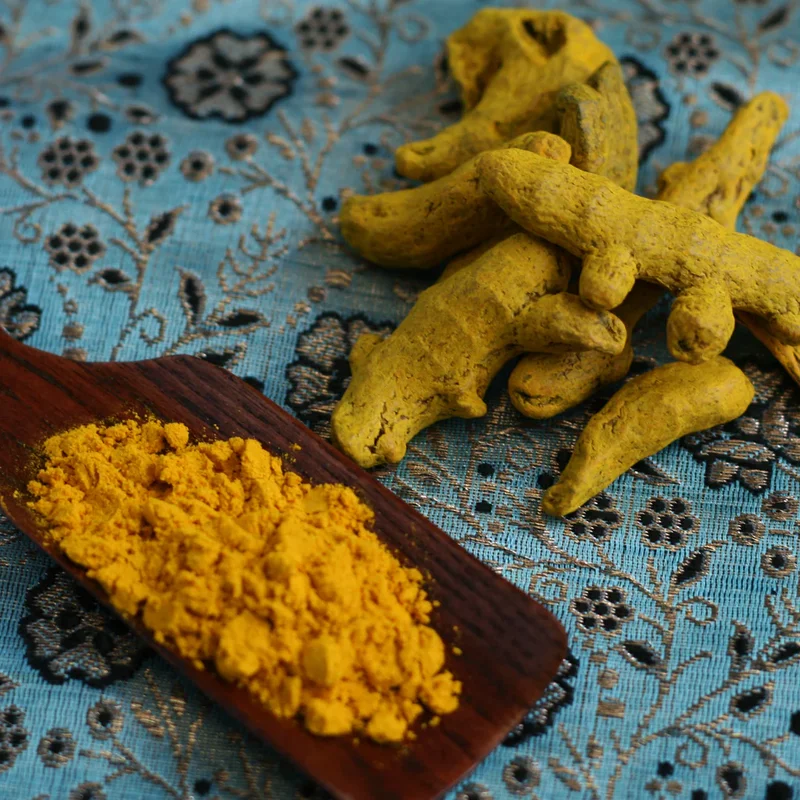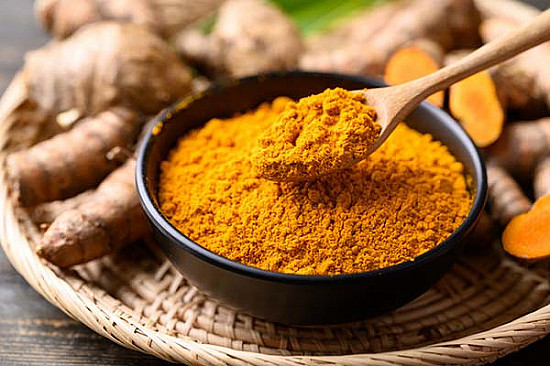Ask Ayurvedic doctor a question and get a consultation online on the problem of your concern in a free or paid mode. More than 2,000 experienced doctors work and wait for your questions on our site and help users to solve their health problems every day.
Haridra Khanda for Cold – Ayurvedic Herbal Remedy for Respiratory Relief

Introduction to Haridra Khanda for Cold
Haridra Khanda for Cold is an ancient Ayurvedic formulation designed to alleviate symptoms associated with colds and respiratory congestion. This herbal remedy combines the potent properties of Haridra (turmeric) with other supportive herbs to reduce inflammation, clear nasal passages, and balance the body's doshas. Incorporating haridra khanda for cold into your wellness routine can help you harness natural healing methods to combat cold symptoms and promote overall respiratory health.
Don't wait or self medicate. Start chat with Doctor NOW
Historical Roots & Ayurvedic Significance
In Ayurveda, haridra khanda has long been recognized for its therapeutic properties, particularly in treating respiratory ailments such as colds and coughs. Historical texts describe this formulation as a powerful remedy that balances aggravated Kapha and Vata doshas, which are often responsible for the buildup of mucus and cold symptoms. The use of haridra khanda for cold reflects a holistic approach that emphasizes detoxification, anti-inflammatory action, and the restoration of the body’s natural equilibrium.
Key Components & Therapeutic Benefits
1. Ayurvedic Herbal Formulations
The efficacy of haridra khanda for cold lies in its unique blend of herbs and spices. Key ingredients include:
- Haridra (Turmeric): Known for its strong anti-inflammatory and antioxidant properties, turmeric is the cornerstone of this formulation.
- Dashamoola: A traditional group of ten roots that help in balancing Vata and Kapha doshas, reducing congestion, and enhancing respiratory function.
- Trikatu (Black Pepper, Long Pepper, and Ginger): These pungent herbs stimulate digestion and improve circulation, aiding in the clearance of mucus.
- Honey & Ghee: Natural adjuvants that soothe the throat and enhance the bioavailability of herbal compounds.
2. Respiratory Relief & Dosha Balancing
Haridra khanda for cold is particularly effective in managing respiratory conditions by:
- Reducing Inflammation: The anti-inflammatory compounds in turmeric help alleviate throat irritation and nasal inflammation.
- Clearing Mucus: Herbs like Trikatu promote the breakdown and expulsion of excess mucus, easing congestion.
- Balancing Doshas: By addressing the imbalance in Kapha and Vata doshas, this formulation aids in restoring natural respiratory function and overall wellness.
3. Holistic Detoxification & Immune Support
The formulation supports the body's detoxification processes and boosts immunity. The combination of herbs not only combats cold symptoms but also strengthens the immune system, helping the body resist infections and recover faster.
4. Integration with Ayurvedic Therapies
For optimal benefits, haridra khanda for cold is often used in tandem with other Ayurvedic treatments:
- Panchakarma: Detoxification therapies that help eliminate accumulated toxins.
- Nasya (Nasal Administration): Specific oil treatments applied in the nasal passages to relieve congestion and promote clear breathing.
- Herbal Steam Therapy: Utilized to open up the airways and support mucus clearance.
How Haridra Khanda Works: The Science Behind the Formulation
The success of haridra khanda for cold is rooted in its multi-targeted approach. Turmeric’s active compound, curcumin, offers potent anti-inflammatory and antioxidant effects, reducing swelling and neutralizing free radicals. Combined with the mucus-clearing properties of Trikatu and the balancing action of Dashamoola, the formulation works to reduce congestion, enhance respiratory function, and restore doshic equilibrium. This synergistic action not only provides symptomatic relief but also supports long-term respiratory health.
Guidelines for Choosing the Right Treatment
When considering haridra khanda for cold, keep these recommendations in mind:
- Consult a Qualified Ayurvedic Practitioner: A personalized approach ensures that haridra khanda for cold is tailored to your specific doshic imbalances and respiratory needs.
- Source Authentic Formulations: Choose products from reputable Ayurvedic pharmacies to ensure the formulation is prepared with high-quality, natural ingredients.
- Adopt Complementary Lifestyle Practices: Incorporate dietary changes, stress management, and other Ayurvedic therapies to enhance the effectiveness of the treatment.
- Monitor Your Progress: Regular follow-ups with your practitioner can help adjust the dosage or complement the treatment with additional therapies if needed.
Recommended Dosage & Usage
The administration of haridra khanda for cold is best determined by an Ayurvedic expert. Typically:
- Dosage: A measured dose of the formulation is taken orally, often in the form of a powder or decoction, as directed by your practitioner.
- Method: It is usually consumed with warm water, milk, or herbal tea to improve absorption and soothing effects.
- Enhancing Effectiveness: For additional relief, the remedy may be combined with other supportive practices such as steam inhalation.
- Professional Guidance: Always follow the dosage recommendations provided by your Ayurvedic practitioner to ensure safety and optimal results.
Potential Side Effects & Precautions
While haridra khanda for cold is generally safe when used as directed, consider the following precautions:
- Individual Sensitivities: Some individuals may experience mild digestive disturbances or irritation from potent herbs.
- Pregnancy & Nursing: Consult a qualified Ayurvedic practitioner before use if you are pregnant or breastfeeding.
- Quality Control: Ensure that the product is prepared under strict quality control measures to avoid contamination or improper dosages.
- Start Gradually: It is advisable to begin with a lower dose and increase gradually based on tolerance and practitioner guidance.
Frequently Asked Questions
How does Haridra Khanda help in relieving cold symptoms?
Haridra khanda for cold reduces inflammation, clears mucus, and balances doshas, which helps alleviate congestion, throat irritation, and other cold-related symptoms.
What are the primary ingredients in Haridra Khanda?
Key ingredients include Haridra (turmeric), Dashamoola, Trikatu, along with natural adjuvants like honey and ghee. These components work together to enhance respiratory health and immune function.
Can Haridra Khanda be used alongside other Ayurvedic therapies?
Yes, haridra khanda for cold is often integrated with Panchakarma, Nasya, and herbal steam therapy to enhance its effectiveness in relieving cold symptoms.
Is Haridra Khanda effective for all types of colds?
While haridra khanda for cold is effective for many individuals, its suitability may vary based on individual doshic imbalances and the severity of symptoms. Personalized treatment plans are recommended.
How should Haridra Khanda be consumed for optimal results?
It is typically taken orally with warm water or milk, as directed by an Ayurvedic practitioner, to maximize absorption and therapeutic benefits.
Are there any dietary recommendations to support Haridra Khanda treatment?
A diet rich in warm, easily digestible foods and avoiding cold, heavy, or processed foods can help support the detoxification process and enhance the benefits of haridra khanda for cold.
Where can I find authentic Haridra Khanda formulations?
Authentic haridra khanda for cold formulations can be sourced from reputable Ayurvedic pharmacies and certified practitioners. Always verify the product’s quality and adherence to traditional preparation methods.
Conclusion & Expert Insights
Haridra khanda for cold offers a comprehensive Ayurvedic solution for managing and alleviating cold symptoms. Its unique blend of potent herbs works synergistically to reduce inflammation, clear mucus, and balance doshic imbalances, thereby supporting respiratory health and overall well-being. By integrating this time-tested remedy with complementary Ayurvedic practices and a balanced lifestyle, individuals can experience effective relief from cold symptoms and enhance their overall vitality.
References
- Sharma, P.V. (1995). Ayurvedic Healing: A Comprehensive Guide.
- Lad, V. (2002). Ayurveda: The Science of Self-Healing.
- Chopra, D. (2004). Perfect Health: The Complete Mind/Body Guide.
- Dash, B. (2010). Traditional Ayurvedic Approaches to Respiratory Health.
- National Institute of Ayurveda. Retrieved from


